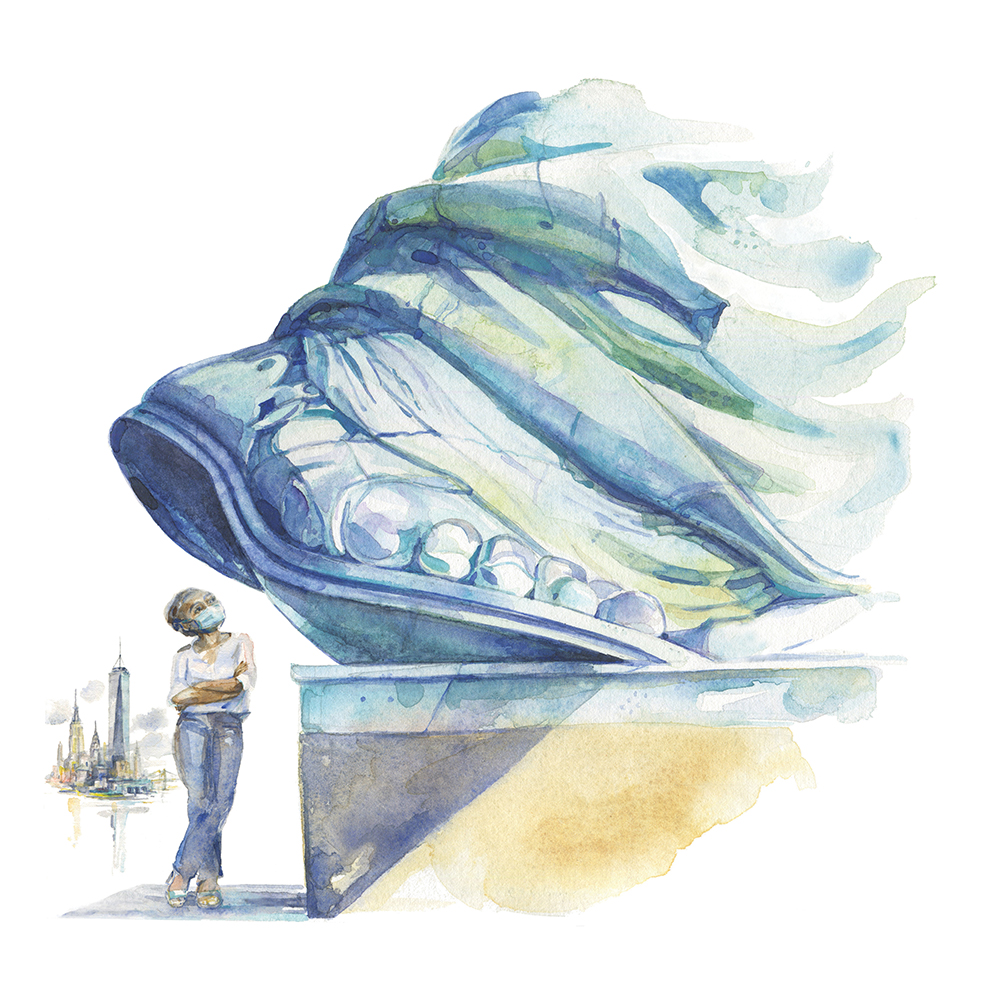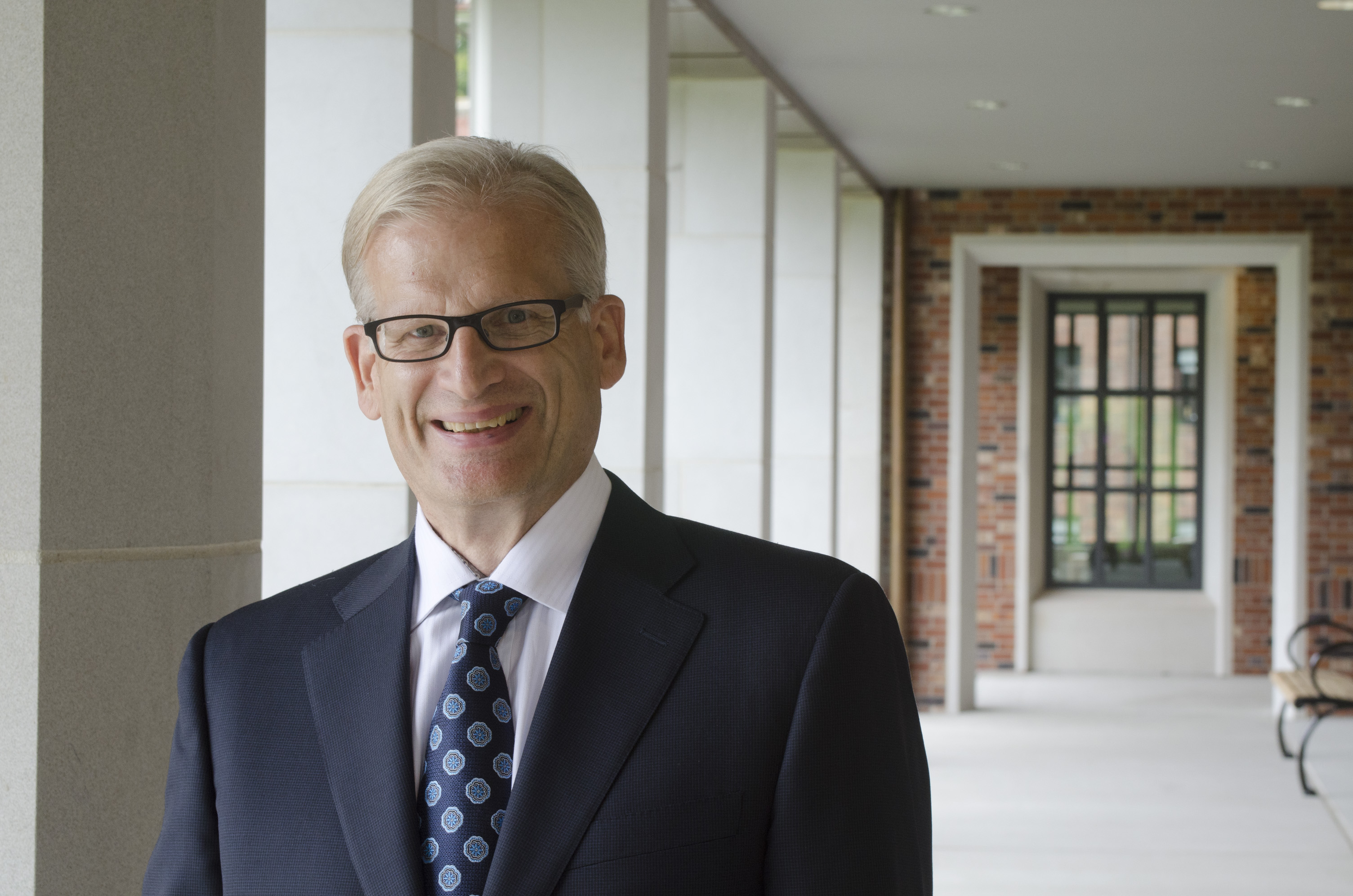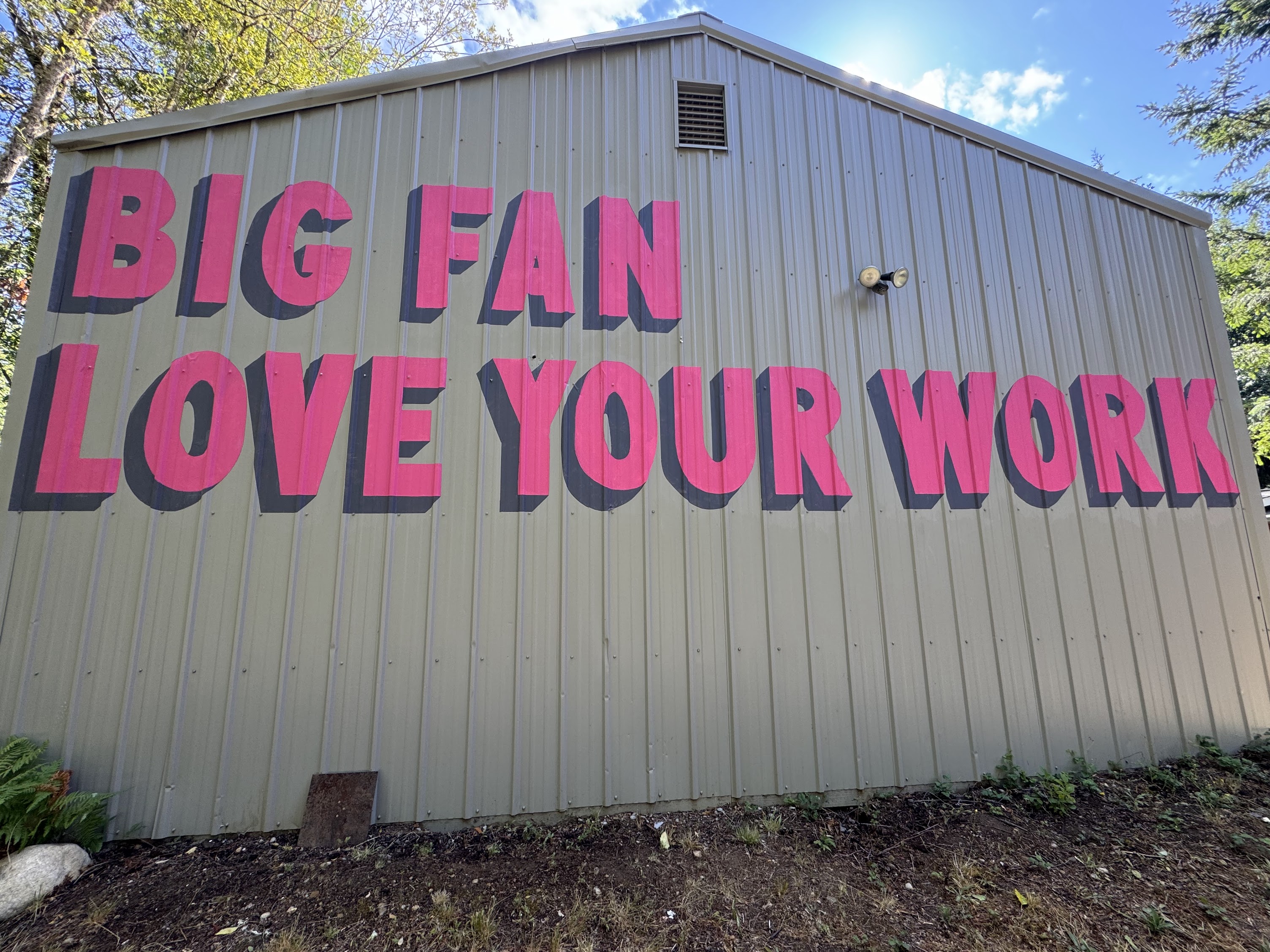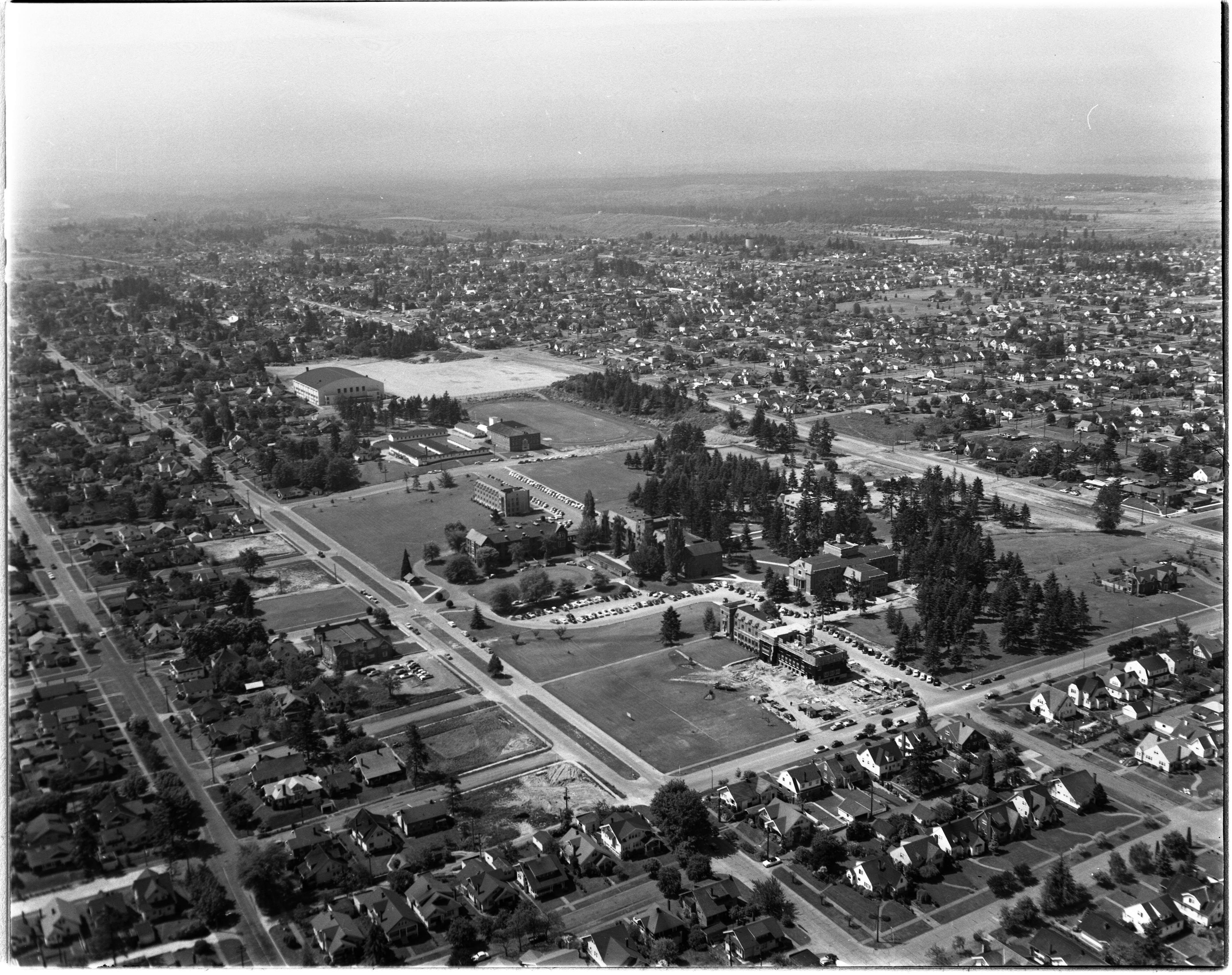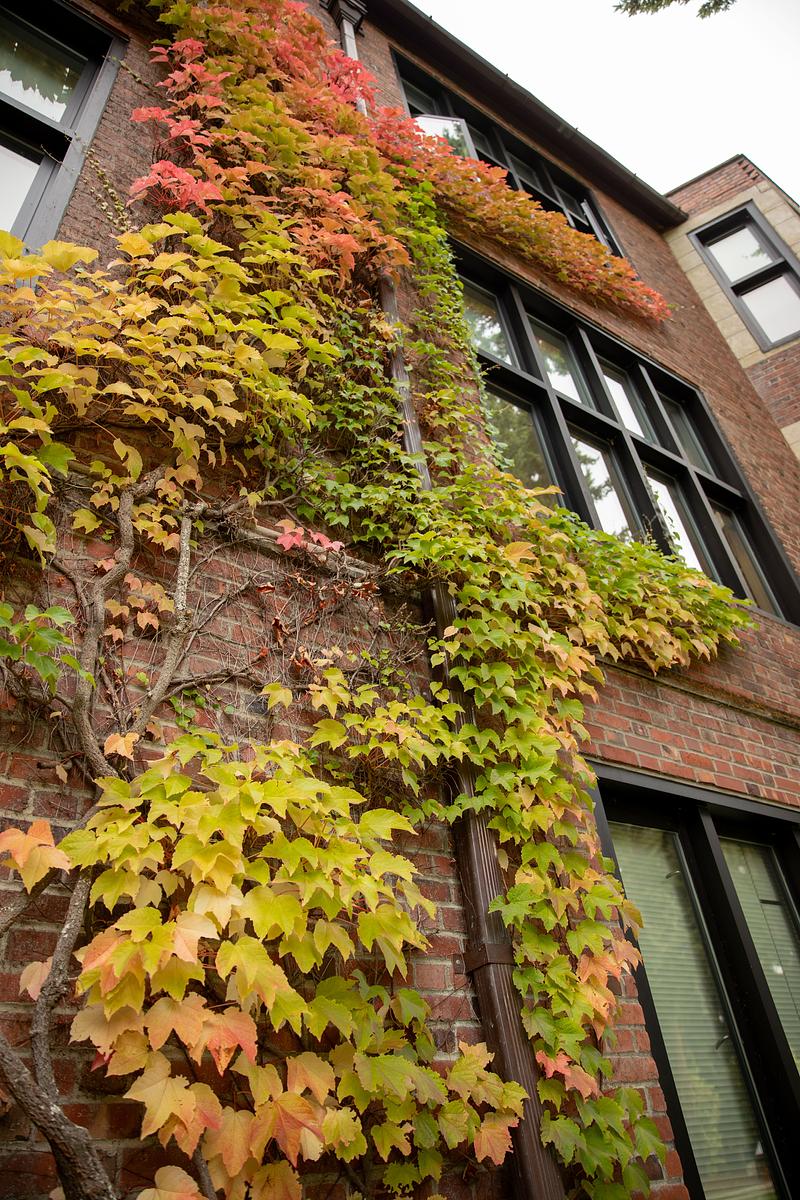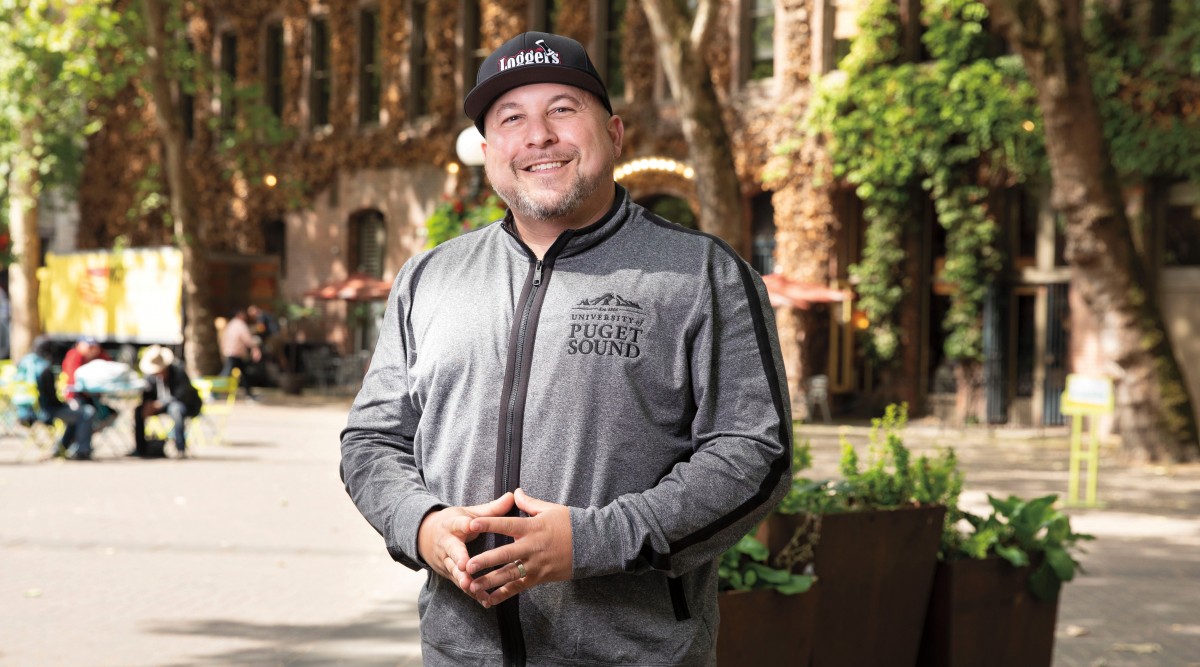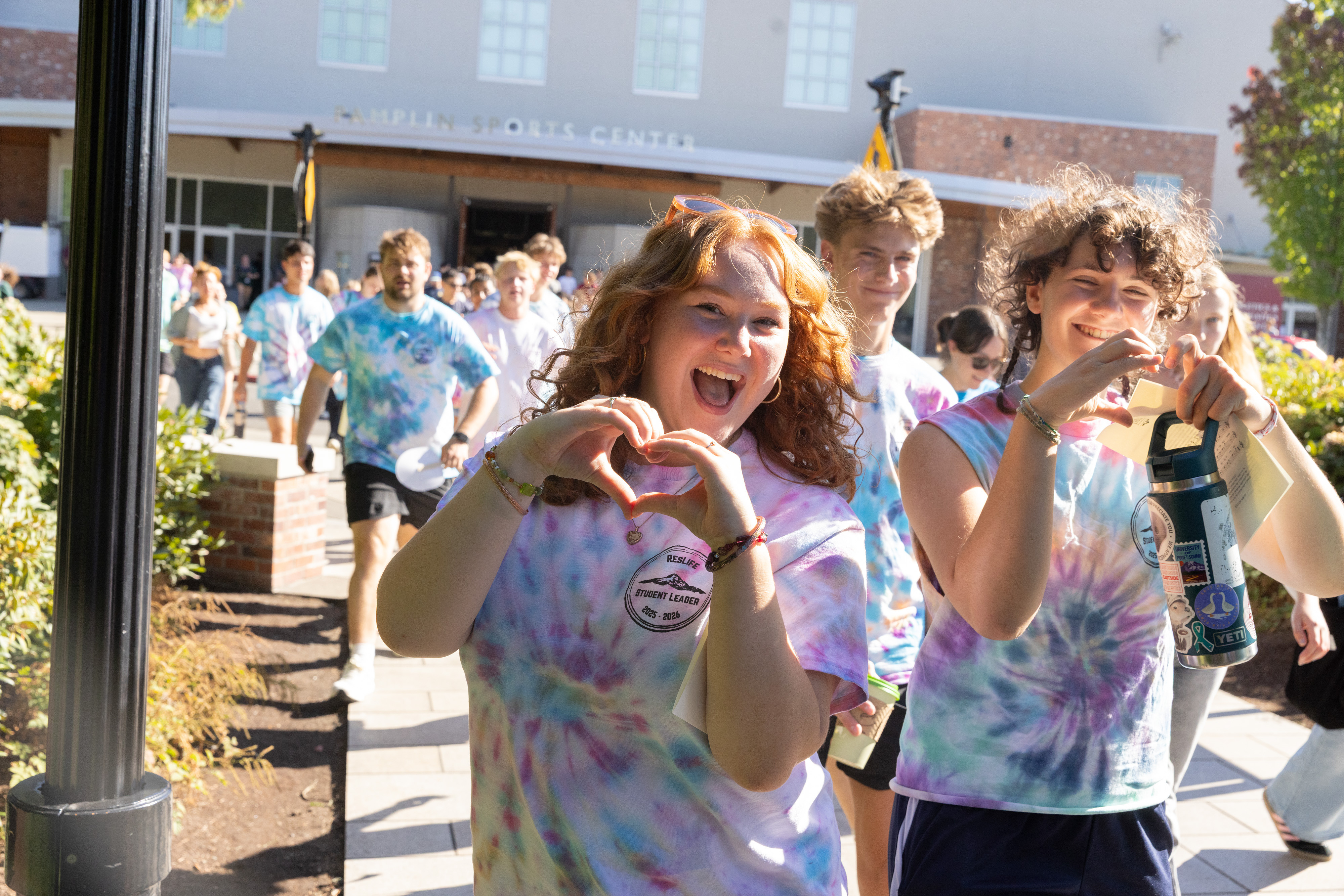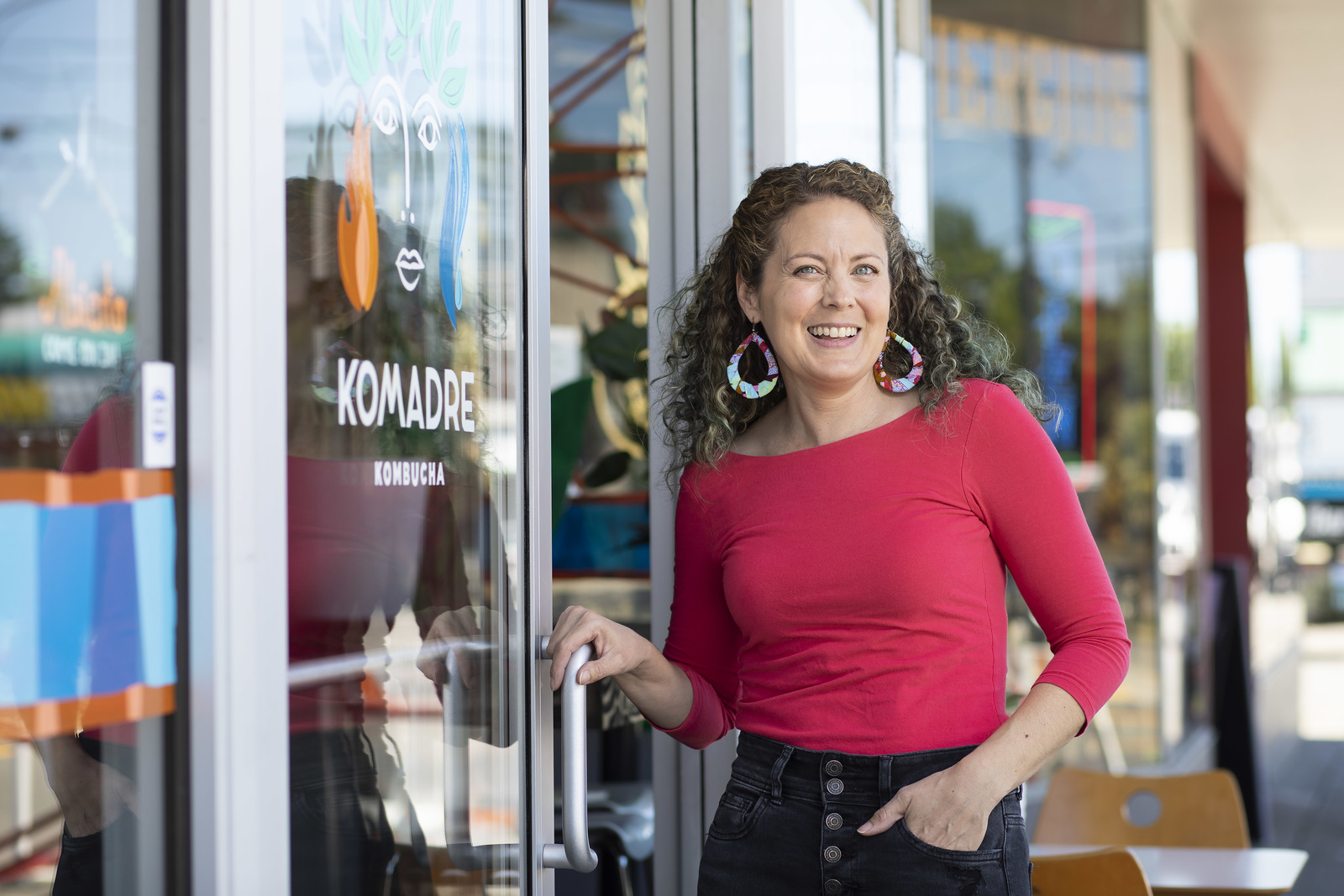Posse Scholars are changing the face of leadership
Mauricio Mendez ’20 was 3 years old when he first experienced otherness, being pushed to the margins of a world that he had believed to be his own. Another child at daycare had spit in his face, and though he spoke no English, having recently moved to the United States from Mexico, Mauricio was determined to tell the teacher. “The lady didn’t understand,” he says. “The only other way to explain it was by demonstrating.”
He was expelled—from daycare, Mauricio emphasizes—until his mother arrived to translate. He watched as her words smoothed the teacher’s face and set everything right-side up again.
I met Mauricio on an August afternoon at his home in the heart of the Tenderloin. The heart of San Francisco. I live in the Tenderloin. It has been my home for the last 10 years, where I’ve worked with the Latino community as a family case manager, interpreter, translator, and advocate.
The Tenderloin is one of the toughest places in San Francisco. The moment you walk out the door, you see someone either strung out lying on the street or closing a drug deal. There is much pain in the Tenderloin. There is much life in the Tenderloin. There are families there, immigrant families working hard to pay the rent and put food on the table, working for something better for their children. Those families are my family. They are the ones washing the dishes in the back of your favorite restaurant. They are the ones cleaning the rising tech buildings in San Francisco.

Upon greeting me at the elevator, Mauricio stood tall and shook my hand warmly. In his eyes there was a maturity and a kindness way beyond his years. I wondered if I had ever seen him as a little boy running around this very building where I had worked many years ago. But now Mauricio is a sophomore at the University of Puget Sound and a Posse scholar, and I had come for a different reason— to write his story.
Growing up in the Tenderloin, Mauricio had many opportunities to get into trouble. His parents worked long hours, and they couldn’t watch over him. His mother, Angelica Rivera, appealed to his teachers to accept him for summer school, which he didn’t need, so he wouldn’t be left idle. Mauricio can appreciate that now, when he looks around the neighborhood. “I see the kids I grew up with on the streets doing stuff that she always wanted me to stay out of,” he says.
Angelica’s own education had stopped before high school. “All the dreams that I could not have, I want my children to have,” she told me in Spanish.
Mauricio knew that he was going to college. He applied to 20 schools and received many acceptance letters, but none met enough of his financial need. “I told my mom, I’m going to college definitely, but it might not be as soon as you think,” he says. “Then I got lucky.” In December of his senior year, he was chosen to be among the first contingent of Posse scholars at the University of Puget Sound.
The Posse Foundation seeks out exceptional students from diverse metropolitan areas and partners with some of the country’s top colleges and universities to award them full-tuition merit scholarships. The selection process is notoriously intense, with three interviews over a period of four months, and it’s highly competitive. This year, 17,000 students have been nominated for 750 available scholarships. But Posse is more than a college access program—it is a social justice movement.
Farah Elakhaoui, the director of the Bay Area office and a Posse alumna, told me that leadership comes in many different forms. Posse considers an alternative set of qualities to assess students’ potential and motivation to succeed, and tries to catch students who might otherwise be overlooked. “We want to change the face of leadership,” Farah says. “We want Posse scholars to sit at the table where important decisions are being made, because they represent all of us. They represent the voices that are currently missing.”

Each Posse is a group of 10 students who stick together throughout college. They begin training during their final semester of high school, meeting weekly for two-hour workshops on team-building, cross-cultural communication, academics, and leadership. Posse scholars arrive on college campuses ready to start building a more inclusive community and leading the way forward.
Mauricio hit the ground running. “When it came to socializing, fitting in—piece of cake,” he says. “It was amazing. People were really nice, and I wanted to do everything. I joined clubs. I joined sports. I was even involved in student government. I was overwhelmed by the opportunities, the resources—basically everything you could do.”
A friend convinced him to play rugby by saying it was just like football—he quickly found that not to be the case. An even greater shock came when he joined the club Advocates for Detained Voices, a group that visited the Northwest Detention Center in Tacoma every other Saturday.
“I thought I could go and help,” Mauricio says. “I didn’t realize how bad it was going to get. It was very hard. I saw families crying. I feel like we’re in an age where media has made it super easy to have an apathetic nature. When it came to being up close and personal, instead of seeing it on TV, seeing [detainees] crying and talking about how they were stripped away from their families, seeing the conditions, hearing of a diabetic who wasn’t given insulin—it was all just overwhelming.”
Mauricio had intended to major in microbiology, but now he plans to become an immigration lawyer. He wants to go where resources are scarce, where immediate help is needed.
Meanwhile, he’s already doing important work as co-president of Latinos Unidos. “The club is basically a safe space,” he says. “Latinos can come in, relax, debrief.” He spoke of the need to code-switch in a predominantly white environment, which can get tiring. Latinos Unidos provides a place where he can be himself, where others share his culture and perspective.
Even so, Mauricio saw an opportunity for the club to increase community engagement. “I wanted to make it more of a learning experience and social justice thing,” he says. “It was ironic that we had to say this, but we had to make the club more inclusive.”
He and his co-president organized an evening of learning about Latino culture. “What we wanted to do was say, ‘You guys don’t know much about Latinos. We know this because we see how you act around us. Come over, come.’ We had white friends who loved to eat Mexican food, or Latino food, but they don’t know the roots. They don’t know the stuff that’s going on. They just don’t know.”
Mauricio and his classmates carry a generation’s hope on their backs. The hope of deeper connection and understanding, of creating change through dialogue. Mauricio is still that little boy, earnestly seeking justice and understanding, but now he has the words he needs to reach out.
• • •
Simone
San Francisco skies shone blue as I made my way to the Posse Foundation’s Bay Area office to meet another Posse scholar, Simone Moore ’20. As soon as I stepped inside, I was greeted warmly by a group of high school students sitting together on couches. The space was wide open, bright, and full of color.
Posse has 10 regional chapters throughout the country, and the Bay Area chapter is the newest. When the office opened in 2015, Posse began searching for a new university partner to commit full-tuition funding and to help deliver a strong program for Bay Area scholars. Though Posse has been around since 1989, the new chapter, the scholars, and the school would be embarking on a new journey together. They were all in it for the first time.

Simone and I sat down to talk in a little office. As a confident and curious person, she has a way of putting people instantly at ease. “I have billions of questions, and I want to find things out,” she says. “If you talk to my friends, they’ll be like, ‘She’s a human encyclopedia.’ I just like to know things.”
She grew up moving all around San Francisco but lived mostly in Ingleside, a quiet and diverse working-class neighborhood. She recalled that she’d been researching colleges, looking for a school with a combination of great research and music programs, when her high school counselor suggested Puget Sound. As a bonus, she could try to get a full scholarship through Posse.
Simone went for it, and she got it. Simone strives for independence, a way of being that was instilled early by her parents. She arrived at Puget Sound knowing how to speak to people, deal with difficult situations, do her laundry, feed herself—things that other students her age struggle with. Still, she had her challenges. “I was expecting to fall into a pit of despair at some point, which did happen, but it was helpful because now I know what that feels like,” she says. “I worked really hard and prioritized studying and doing work, but I didn’t think my social life would be as dead as it was.”
This year, she plans to find a better balance. As a psychology major, with a minor in neuroscience and an emphasis in bioethics, she’s interested in pursuing research and doing advocacy work that contributes to public policy changes. “Ultimately I want to be a helpful and useful person,” she says.
In addition to being on the executive teams of the Black Student Union and the Adelphian Concert Choir, she’s leading a new club called Visible Spectrum that strives to empower and support students of color who are interested in STEM (science, technology, engineering, and math).
The biggest challenge for Simone has been adjusting to a new environment. As a woman of color in San Francisco, she was not accustomed to standing out, being stared at on the street, having people ask to touch her hair. The relative lack of diversity in North Tacoma and on campus was hard to get used to. “It’s a little bit of a culture shock, because I’m like, where are all the brown people? I can’t find them,” she says. “But I think the school’s really working toward trying to fix that, which I appreciate.”
One of Simone’s biggest strengths is her willingness to engage, and she’s finding a sense of belonging within the liberal arts education model. “If there’s one thing that I really love to do, it’s having someone who opposes my viewpoint and then arguing with them in a very respectful, intellectual way just to see if I can change my viewpoint or change theirs,” she says. “I’ve gone into those conversations with professors, and it’s been fantastic.”
In her first year, Simone experienced the power of being part of a Posse. The whole group met weekly with Ariela Tubert, their faculty mentor and an associate professor of philosophy, for workshops on team-building, career planning, health and wellness, current events, leadership, and cross-cultural communication. They also went bowling and hiking at Point Defiance park. In their second year, the Posse 1 scholars will begin to facilitate many of the workshops themselves. By their third year, the scholars will forge ahead on their own, together.
Simone feels the support. “They’re not just my Posse people— they’re actual friends that I’m getting close to,” she says. “It’s incredibly important to me to have people in my corner, so I think Posse will have an imprint on my life for a very long time.”
• • •
Priyanki
The last Posse scholar I spoke with was Priyanki Vora ’20. We met at a coffee shop in the Haight, where she grew up, and the sound of city construction rattled around us as we talked. Both of her parents had immigrated from India, but she and her twin sister were born and raised here.
Priyanki recalls that at the first Posse interview, she and a group of about 50 students were asked to walk around the room as if it were filled with Jell-O. “I couldn’t take them seriously,” she says, recalling that exercise. The next interview changed her mind, though, and she hung on through the final round.

One day in December, just before her high school’s winter break, Priyanki was taking an exam when her phone lit up. It was Posse calling. She stepped into the school hallway to answer.
“Do you still want to attend the University of Puget Sound?” Farah asked.
“Yes, of course,” Priyanki said. Then she heard screaming and cheering—it sounded as if all four staff members were in the room. Farah informed her that she got it. She was headed to the Pacific Northwest as a Posse scholar.
Priyanki was shocked. She had wanted this so badly, and she was also worried about leaving her parents and her sister, leaving her city for the unknown. When she told her parents the news, her mother started crying. “My dad was excited, but I could see that he was also worried, because out-of-state was never something that I thought about. It was intense when they found out. Over time, going through all the Posse meetings, they understood that it was good for me. Now, they’re more on board. The initial reaction was very scary.”
Priyanki has always wanted to be a doctor. Her grandfather had dreamed of opening a hospital in the small town where he was born, in western Gujarat, but before he could build it, he was swindled by his business partner. She envisions fulfilling her grandfather’s dream and helping the people there.
Priyanki sees the world, and herself as part of it. She understands the courage it takes to lead now more than ever. “I’d never been away from my family for more than a month,” she says. “That disconnect was hard, especially with my sister. I’ve always been really close to my dad, and he has a lot of health issues. If anything happened, my mom doesn’t speak English, and it would be really hard for her to deal with anything. But the more things I got involved in, the more I understood that life doesn’t stop for my parents just because I’m not there. After that, it became a little bit easier.”
At Puget Sound, Priyanki is studying molecular and cellular biology and history. She is on the pre-med track, and wants to eventually specialize in orthopedic surgery. “It’s a field where there are very few women, especially women of color,” she explains. “There’s a lot of space for growth.” She is also restarting the South Asian Student Union.
She was surprised by how much it matters to her to find people who look like her on campus. “Even if there are only six of us that identify as South Asian, I think it’s important for us to get to know each other,” she says. “My family has a community of other South Asians in San Francisco, but it had never been so significant to me. I think I’ve come to realize how much that matters.”
As I talked with the Posse scholars, I was able to see myself in them. I was able to see my family and my people in them. I was able to feel the long line of struggle, el esfuerzo. This word can be translated into two parts—strength and perseverance—and with it, all of our stories intertwine.
My parents were migrants who moved up and down from Guadalajara, Mexico, to California, working in the tomato fields. As a high-school student, I took part in the federal Migrant Education Program’s pre-college
summer training. There, I met students who were also like me. It was wonderful and empowering. But after the summer ended, we lost touch. My first year of college was daunting, being surrounded by a world that didn’t resemble anything I had known. I didn’t know how to articulate this to my peers, and even less so to my family.
That’s what makes Posse so powerful. After the semester-long training in high school, the scholars stay together and help each other navigate a new environment, which helps with retention rates. They also have important support from the university, beyond their scholarships. As their mentor, Ariela meets with Posse scholars individually every other week, and as a group each week.
Ariela met her Posse in July before the start of their freshman year, when they all attended a three-day retreat at Camp Lodestar in California, along with Bay Area staff. She got to know them over lunchtime chats and laughing through the “no-talent talent show.” When they regrouped on campus, she guided them through challenges and watched them hit their stride. “I’ve done a lot on campus, but this feels to me like the most meaningful work,” she says. “These students are very special to me.”
Posse is a point of pride for the university, too. “Posse students bring skills and motivation to be leaders on and beyond campus, partnering with other students, faculty, and staff to strengthen teaching and learning even further at Puget Sound,” says Academic Vice President Kristine Bartanen.
After graduation, the Posse scholars will remain connected through their shared experiences, but more than that, they’re able to see their stories as part of a larger narrative, and themselves as part of a larger movement. They are part of a national network of leaders ready to sit at those important tables and create real and lasting change.
The late poet and activist June Jordan wrote that when she spoke of people and community she spoke of all of us, the white working class, the black working class, the white feminist, the black feminist, the elderly, the young, the hopeful, the visionary, the terrorized, the people who just want to go on with their days, everyone—we cannot exist separately and still call the United States a democracy. None of us gets far on our own; it takes a village.
Posse continues to grow. In the foundation’s 28 years, 8,000 scholars have earned $1 billion in leadership scholarships. Posse is currently partnering with 56 universities, and their scholars have a 90 percent graduation rate—well above the national average. The vision of Deborah Bial, Posse founder and MacArthur “genius grant” awardee, is coming to life. “Imagine the network that’s being built among young people who represent the diversity of this country,” she says. “That is the goal of this program.”
This fall, as Puget Sound’s first contingent of Posse scholars embarks on its second year, a new group of scholars, known as Posse 2, is beginning its first. Priyanki hopes that the new scholars will find support within the Posse family, as she has, but will also keep reaching out to others in the community. “At Puget Sound, we’ve built really good connections, and campus has become more welcoming,” she says. “I think that’s something that Posse will continue to do.”

